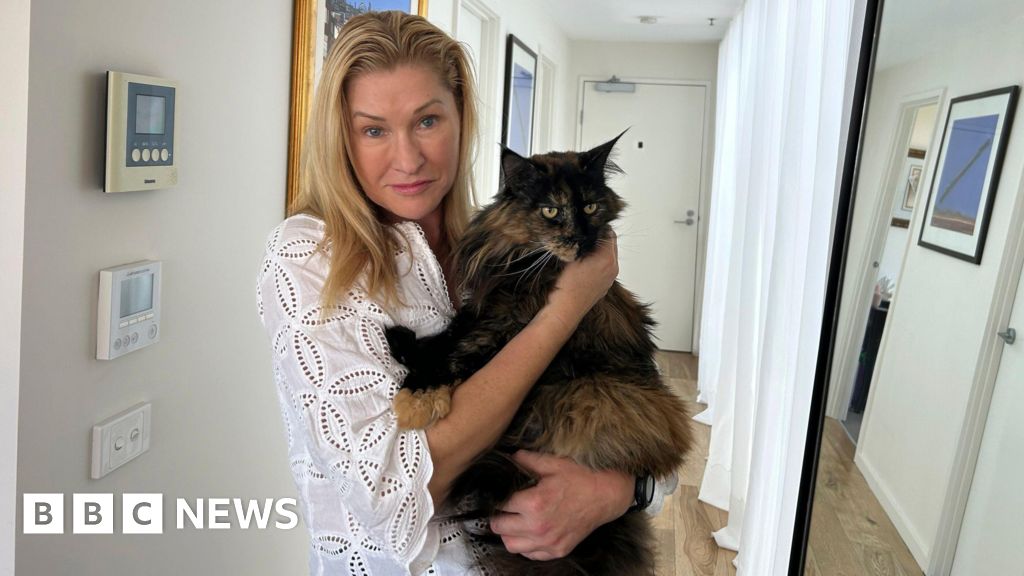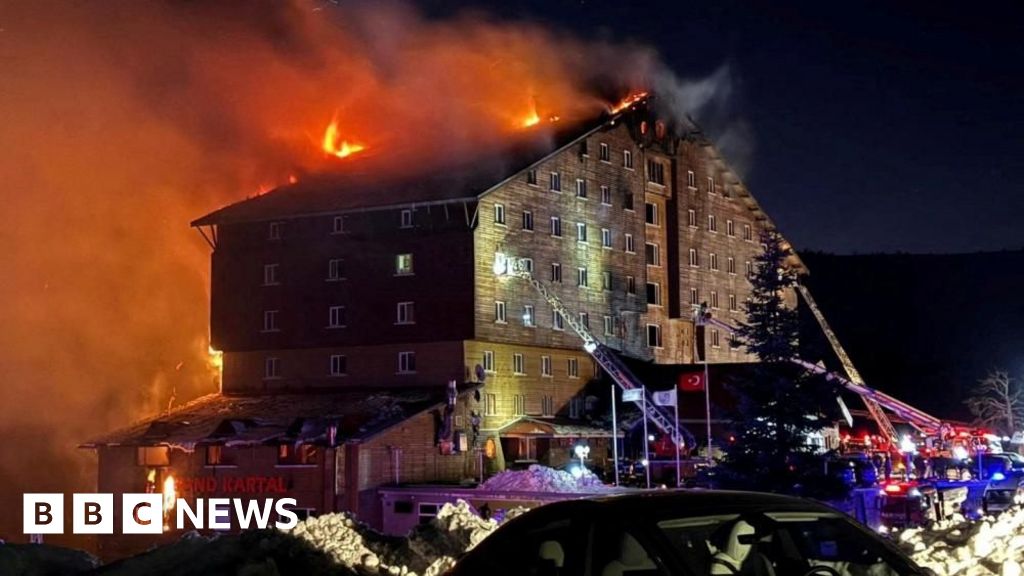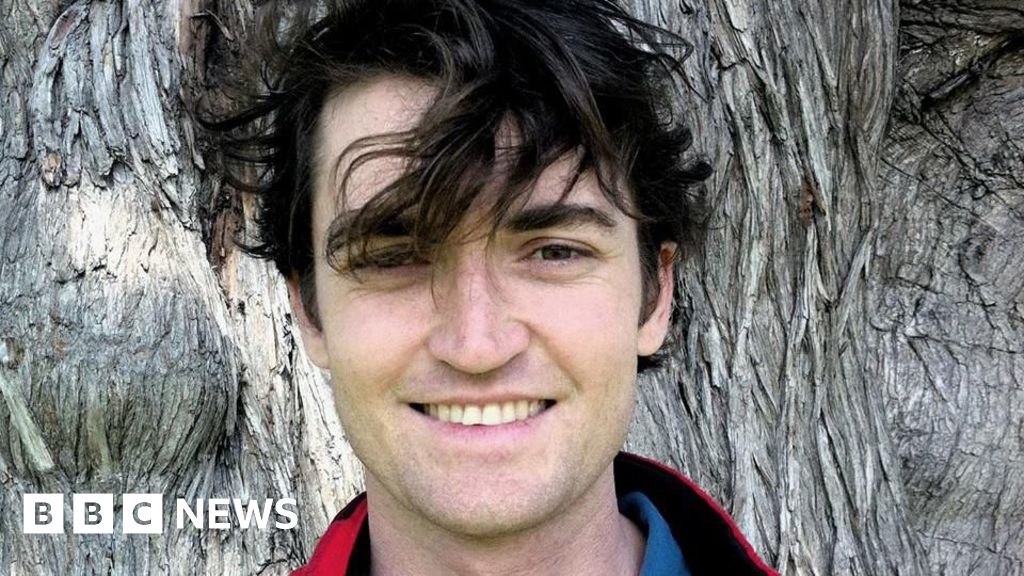ARTICLE AD BOX
Watch: Irish PM fights back tears announcing his resignation
The Taoiseach (Irish prime minister) Leo Varadkar will step down as party leader immediately and will resign as taoiseach as soon as his Fine Gael successor is selected.
Announcing his resignation, Mr Varadkar described leading his country as "the most fulfilling time of my life".
He was Ireland's youngest PM in 2017 when he became Fine Gael leader.
He currently leads the coalition government in Dublin, along with Fianna Fáil and the Green Party.
Speaking from the steps of government buildings in Dublin on Wednesday, Mr Varadkar said he had "led Ireland from unemployment to full employment, from budget deficit to budget surplus, from austerity to prosperity".
Image source, PA Media
Image caption,Mr Varadkar said he felt he was not the "best person for the job anymore"
Mr Varadkar added that he was "proud that we have made the country a more equal and more modern place when it comes to the rights of children, the LGBT community, equality for women and their bodily autonomy".
During his time as taoiseach, Mr Varadkar championed referendums to change the Irish constitution legalising same-sex marriage and abortion.
Mr Varadkar also listed work to improve the affordability of childcare among his achievements as well as increasing government spending on arts and culture, international development, and public infrastructure.
He also conceded that "there are areas where we have been much less successful" but added: "I hope you'll forgive me if I leave it to others to point them out on a day like this."
Why did Leo Varadkar resign?
Mr Varadkar said his reasons for stepping down were "both personal and political".
He said that he felt the current government "could be re-elected" but he felt he was "not the best person for the job anymore".
Image source, Nick Bradshaw
When is the next general election in Ireland?
The Irish government parties have said they do not expect Wednesday's announcement to trigger a general election.
In the election of 2020, Mr Varadkar led his party to a third-place finish in terms of number of seats in Dáil Éireann, the lower house in the country's parliament.
As part of the coalition deal struck between the parties it was agreed that Mr Varadkar and Micheál Martin would each hold the position of taoiseach for two years.
In 2020, Mr Martin was appointed taoiseach with Mr Varadkar serving as his tánaiste (deputy PM), before the two swapped roles in 2022.
Speaking after Mr Varadkar's resignation announcement, Mr Martin said he had been "surprised" by the decision.
"I want to take the opportunity to thank him sincerely, we got on very well," Mr Martin added.
Mr Martin said he remained committed to fulfilling the full term of the coalition government.
Image source, PA Media
Image caption,Micheál Martin said he was "surprised" when he heard that Mr Varadkar was stepping down
Eamon Ryan, leader of the Green Party, the smallest of the three coalition partners, said Mr Varadkar had been "an energetic and committed leader of the country who was always supportive of his government colleagues".
Mr Ryan said his party looked forward to the Fine Gael leadership contest and the election of a new taoiseach.
In the interim, he said, the government would continue to fulfil its mandate.
"I would like to offer my good wishes to Leo as he prepares to depart the taoiseach's office," he added.
'Run out of road'
Speaking in the Dáil, (lower house of Irish parliament) Sinn Féin President Mary Lou McDonald, who is leader of the Opposition, called for a general election.
She said it was "unthinkable" for the next taoiseach to be chosen by a "conclave" of Fine Gael politicians.
"This is a time for fresh leadership. Not just a change of taoiseach, but a change of government, and a change of direction," she said.
Ms McDonald claimed that when Fine Gael took power in 2011 Ireland had one of the highest levels of home ownership in Europe, but it had since declined to one of the worst.
"This government has now run out of steam and run out of road, so rather than limping on in a caretaking capacity let's go to the people," she said.
Image source, PA Media
Image caption,First Minister Michelle O'Neill (left) called for a general election in the Republic of Ireland
The UK Prime Minister, Rishi Sunak, wished Leo Varadkar well following his resignation.
A spokesperson said the PM would "work closely with him and his successor".
"Ireland is a vital partner of the UK," the spokesperson added.
Northern Ireland's First Minister Michelle 'O'Neill also said it was "time for an election" in the Republic of Ireland.
"Now is not a "time for the rearranging of the deck chairs," the Sinn Féin vice president said.
She described Fine Gael's time in power as "13 years of failure".
Deputy First Minister Emma Little-Pengelly said: "Leo Varadkar and unionism didn't often see eye to eye, if at all".
However, the Democratic Unionist Party MLA wished him "all the best".
DUP Leader Sir Jeffrey Donaldson said he and Mr Varadkar "were very often on different ends of the political spectrum".
"We differed on the Republic of Ireland's approach to legacy, and sharply differed on his approach and attitude on the [Northern Ireland] Protocol and the constitutional future of Northern Ireland," he said.
"Where we differed, we did so respectfully."
Sir Jeffrey added that there were other areas where they worked together on matters of mutual benefit "for both our countries".
Ireland's President Michael D Higgins was told of the taoiseach's intention to resign shortly before Wednesday's press conference and the pair spoke immediately afterwards.
A spokesman for the president said: "Over the course of this, the president thanked the taoiseach for his service."
Who could be the next taoiseach?
Image source, Getty Images
Image caption,Higher Education Minister Simon Harris is the early favourite with many bookmakers
At the moment four names are being mentioned.
Further and Higher Education Minister Simon Harris, 37, is the early favourite with many bookmakers.
He gained a high profile as health minister when the Republic of Ireland voted to amend its constitution to legalise abortion in 2018 and subsequently served as justice minister.
Helen McEntee became a TD at the age of 26, succeeding her father after he took his own life.
Image source, Niall Carson
Image caption,After widespread disorder in Dublin last year, Helen McEntee faced down calls to resign from opposition parties
In 2017 she took on the high-profile role as minister of state for European affairs and in June 2020 she was promoted to become minister of justice.
After widespread disorder in Dublin in November 2023 she faced down calls to resign from opposition parties.
Paschal Donohoe is the public expenditure minister and was previously finance minister from 2017 to 2022, arguable the second-most important cabinet post.
The Dublin Central representative is also president of the Eurogroup - which brings together the finance ministers of the eurozone for informal meetings.
Minister for Social Protection Heather Humphreys represents the Cavan-Monaghan constituency which borders Northern Ireland.
As well as her main cabinet post, she covered the justice ministry for two periods while McEntee took maternity leave.
If she became taoiseach she would be the first Protestant to hold the post.
You can follow continuing coverage of the fallout from the resignation of the Irish Taoiseach, live with BBC News on iPlayer.

 10 months ago
26
10 months ago
26








 English (US) ·
English (US) ·